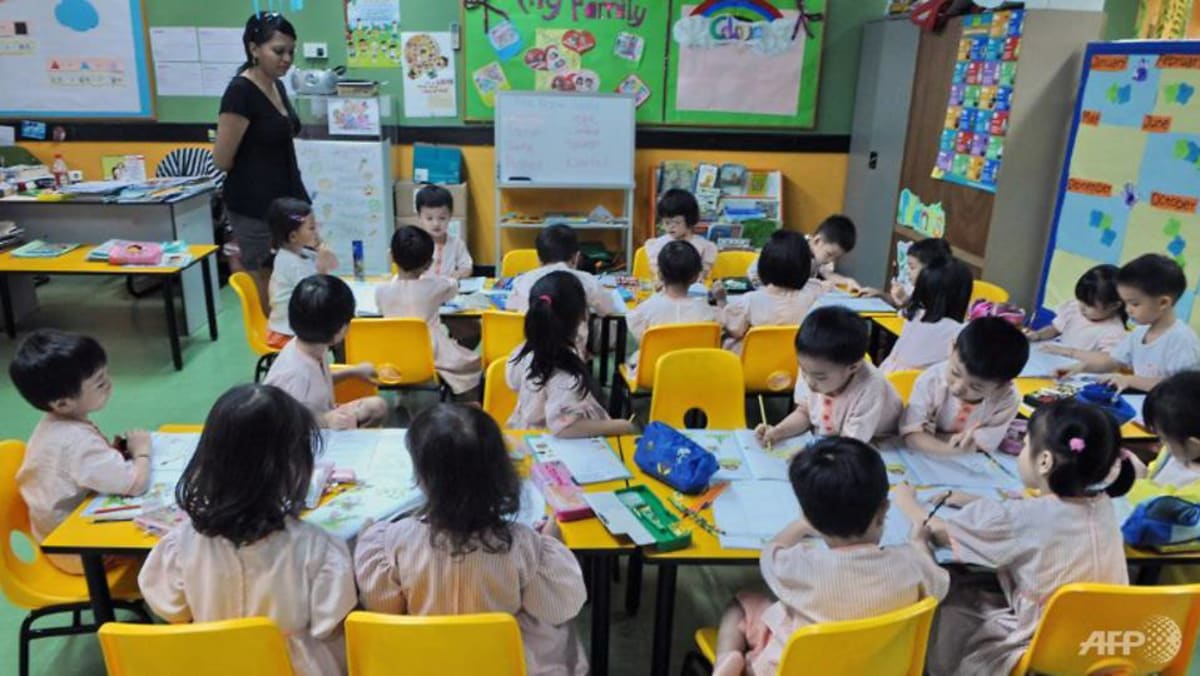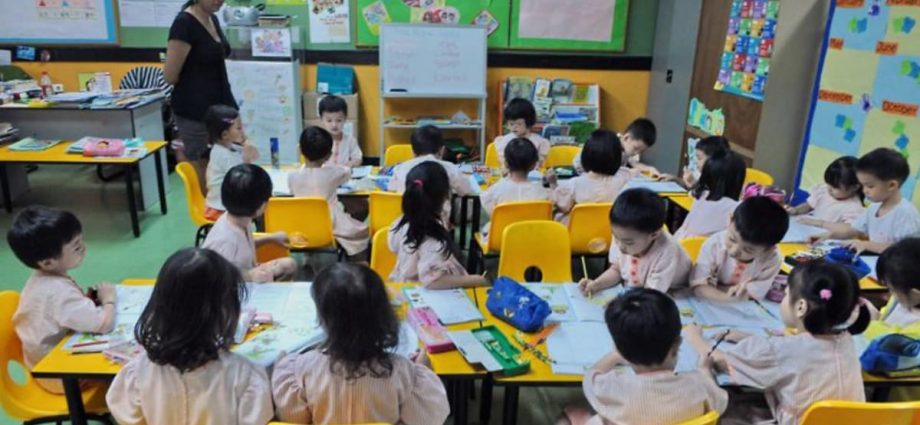
WELFARE AND WORK-LIFE BALANCE
Pre-school teachers CNA spoke to stressed the need to improve support for teachers and work-life balance in the sector to retain staff.
Teachers from Government-supported and private pre-schools said they find themselves working while on leave and even throughout their lunch breaks or after they return home.
They also welcomed the review of centres having to remain open on Saturdays.
The service is typically underutilised, with only a few children coming in on Saturdays, they shared. Centres typically roster teachers to work on Saturdays in shifts, rotating between teachers every few weeks.
For example, Heather’s centre remains open on Saturdays for just one child.
On most days, she oversees a class of 24 two- to three-year-olds with another Chinese language teacher and an assistant teacher.
Even though relief teachers or part-time teachers are available when needed, they are often not familiar with the class and the younger children find it difficult to warm up to a new face, Heather added.
Teachers at her centre get one hour of no-contact time each week, which refers to working hours spent away from the children.
“A lot of teachers do their paperwork during the children’s naptime. One hour is supposed to be our lunch break, but we don’t really get a break,” Heather said, adding that she usually clears paperwork or continues to look after the children while eating.
About three to four times a week, she continues to work after returning home from her seven-hour shift at the centre.
At Nicole’s centre, many of her colleagues end up taking leave to clear paperwork or attend meetings.
Because of manpower shortages, there are some classes that go without a teacher if a staff member goes on leave.
“My mentor, she just came back from leave and she didn’t rest well. She came back even more tired. I feel very sad for her, when she’s on leave she’s still replying to emails,” said Nicole.
“Sometimes when we clear leave, it means that we don’t have time to do all the current paperwork. We took leave just to do paperwork.”
Kate, who has 15 years of experience working at both anchor operator centres and private pre-schools, said that many teachers are “breaking down mentally”.
Many pre-schools are also facing a shortage in manpower, which affects class size ratios, she added.
“We are always very tired. For example, for some pre-schools, it’s one teacher to a whole class at a time. Sometimes you want to go to the toilet, you have to shout for the teacher next door and ask them to help you look after the kids, to do a quick run to the toilet,” she shared.
“For some of us, we don’t even go to the toilet for the whole morning. Sometimes the moment you step into the toilet, you can hear screams and shouts from outside, so it’s like forget it, I’ll just tahan a bit more.”
Kate has since moved to teach in a secondary school.
When asked about whether the new changes have prompted her to return, Kate said she is open to the idea, but hopes to see more improvements soon.
“We love children. That’s the reason why we believe in education. But we are waiting to see what other changes, because to be very honest, all the issues have already been raised for many years.”

